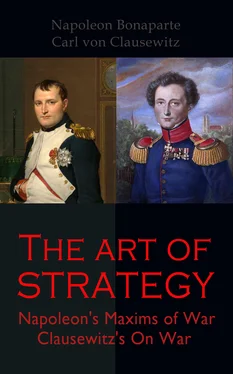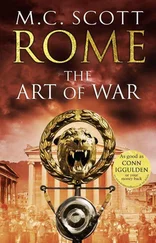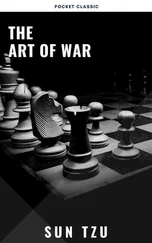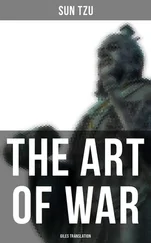It seems to me, however, that a general who should rest the success of a battle upon such a principle, would be more likely to lose than to gain by it; for if he had to deal with a skilful adversary and an alert tactician, the latter would find time to take advantage of the previous bad arrangements, before he would be able to remedy them.
Table of Contents
The strength of an army, like the power in mechanics, is estimated by multiplying the mass by the rapidity; a rapid march augments the morale of an army, and increases its means of victory. Press on!
“Rapidity,” says Montécuculli, “is of importance in concealing the movements of an army, because it leaves no time to divulge the intention of its chief. It is, therefore, an advantage to attack the enemy unexpectedly, to take him off his guard, to surprise him, and let him feel the thunder before he sees the flash; but if too great celerity exhausts your troops, while, on the other hand, delay deprives you of the favorable moment, you must weigh the advantage against the disadvantage, and choose between.”
Marshal Villars observes, that “in war everything depends upon being able to deceive the enemy; and having once gained this point, in never allowing him time to recover himself.” Villars has united practice to precept. His bold and rapid marches were almost always crowned with success.
It was the opinion of Frederick that all wars should be short and rapid; because a long war insensibly relaxes discipline, depopulates the state, and exhausts its resources.
Table of Contents
When an army is inferior in number, inferior in cavalry, and in artillery, it is essential to avoid a general action. The first deficiency should be supplied by rapidity of movement; the want of artillery, by the nature of the manœuvres; and the inferiority in cavalry, by the choice of positions. In such circumstances, the morale of the soldier does much.
The campaign of 1814 in France was skilfully executed upon these principles. Napoleon, with an army inferior in number, an army discouraged by the disastrous retreats of Moscow and of Leipzig, and still more by the presence of the enemy in the French territory, contrived, notwithstanding, to supply his vast inequality of force by the rapidity and combination of his movements. By the success obtained at Champ-Aubert, Montmirail, Montereau, and Rheims, he began to restore the morale of the French army. The numerous recruits of which it was composed, had already acquired that steadiness of which the old regiments afforded them an example, when the capture of Paris, and the astonishing revolution it produced, compelled Napoleon to lay down his arms.
But this consequence resulted rather from the force of circumstances than from any absolute necessity; for Napoleon, by carrying his army to the other side of the Loire, might easily have formed a junction with the armies of the Alps and Pyrenees, and have reappeared on the field of battle at the head of a hundred thousand men. Such a force would have amply sufficed to re-establish the chances of war in his favor; more especially as the armies of the allied sovereigns were obliged to manœuvre upon the French territory with all the strong places of Italy and France in their rear.
Table of Contents
To direct operations with lines far removed from each other, and without communications, is to commit a fault which always gives birth to a second. The detached column has only its orders for the first day. Its operations on the following day depend upon what may have happened to the main body. Thus, this column either loses time upon emergency, in waiting for orders, or it will act without them, and at hazard. Let it therefore be held as a principle, that an army should always keep its columns so united as to prevent the enemy from passing between them with impunity. Whenever, for particular reasons, this principle is departed from, the detached corps should be independent in their operations. They should move toward a point fixed upon for their future junction. They should advance without hesitating, and without waiting for fresh orders; and every precaution should be taken to prevent an attack upon them in detail.
The Austrian army, commanded by Field-marshal Alvinzi, was divided into two corps, destined to act independently, until they should accomplish their junction before Mantua. The first of these corps, consisting of forty-five thousand men, was under the orders of Alvinzi. It was to debouch by Monte Baldo, upon the positions occupied by the French army on the Adige. The second corps, commanded by General Provéra, was destined to act upon the lower Adige, and to raise the blockade of Mantua. Napoleon, informed of the enemy’s movements, but not entirely comprehending his projects, confined himself to concentrating his masses, and giving orders to the troops to hold themselves in readiness to manœuvre. In the meantime, fresh information satisfied the general-in-chief of the French army that the corps which had debouched by La Coronna, over Monte Baldo, was endeavoring to form a junction with its cavalry and artillery—both which, having crossed the Adige at Dolce, were directing their march upon the plateau of Rivoli, by the great road leading by Incanole.
Napoleon immediately foresaw that, by having possession of the plateau, he should be able to prevent this junction, and obtain all the advantages of the initiative. He accordingly put his troops in motion, and at two o’clock in the morning occupied that important position. Once master of the point fixed upon for the junction of the Austrian columns, success followed all his dispositions. He repulsed every attack, made seven thousand prisoners, and took several standards and twelve pieces of cannon. At two o’clock in the afternoon, the battle of Rivoli was already gained, when Napoleon, learning that General Provéra had passed the Adige at Anghiari, and was directing his march upon Mantua, left to his generals the charge of following up the retreat of Alvinzi, and placed himself at the head of a division for the purpose of defeating the designs of Provéra.
By a rapid march, he again succeeded in the initiatory movement, and in preventing the garrison of Mantua from uniting its force with the relieving army. The corps intrusted with the blockade, eager to distinguish itself under the eyes of the conqueror of Rivoli, compelled the garrison to retire into the place, while the division of Victor, forgetting the fatigues of a forced march, rushed with impetuosity on the relieving army in front. At this moment a sortie from the lines of St. George took him in flank, while the corps of Augereau, which had followed the march of the Austrian general, attacked him in rear. Provéra, surrounded on all sides, capitulated. The result of these two battles cost the Austrians three thousand men in killed and wounded, twenty-two thousand prisoners, twenty-four standards, and forty-six pieces of cannon.
Table of Contents
An army ought to have only one line of operation. This should be preserved with care, and never abandoned but in the last extremity.
“The line of communication of an army,” says Montécuculli, “must be certain and well established, for every army that acts from a distant base, and is not careful to keep this line perfectly open, marches upon a precipice. It moves to certain ruin, as may be seen by an infinity of examples. In fact, if the road by which provisions, ammunition and reinforcements are to be brought up, is not entirely secured—if the magazines, the hospitals, the depôts of arms, and the places of supply are not fixed and commodiously situated—not only the army cannot keep the field, but it will be exposed to the greatest dangers.”
Читать дальше












